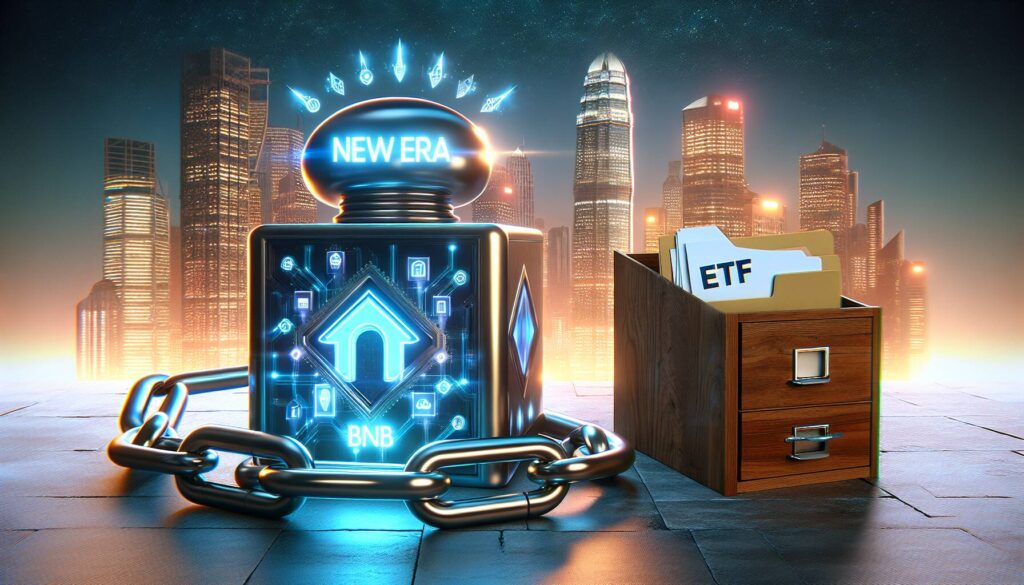In an exciting development in the world of cryptocurrency, Shiba Inu has formed a notable partnership with the United Arab Emirates’ Ministry of Energy and Infrastructure (MoEI). This collaboration aims to leverage Shiba Inu’s innovative blockchain applications to enhance various public sector services. With a market capitalization of around billion as of Thursday, Shiba Inu is quickly growing its appeal by integrating its technology into governmental operations.
The MoEI plans to implement Shiba Inu’s Operating System (ShibOS) through its layer-2 blockchain, Shibarium. This integration is intended to streamline operations, boost transparency, and enhance security across many sectors under the Ministry’s oversight, including energy, infrastructure, and transportation. As stated by Sharif Al Olama, the Undersecretary for Energy and Petroleum Affairs at MoEI, “Shiba Inu’s decentralized solutions align perfectly with our mission to remain a global innovator.”
“Whether it’s reinforcing our net-zero roadmap or modernizing how we manage energy and infrastructure,” Al Olama added, highlighting the strategic significance of this partnership as the UAE aims for sustainability and technological advancement.
The UAE Energy Strategy 2050 serves as a backdrop for this initiative, demonstrating the nation’s commitment to integrating cutting-edge technology in its quest to streamline energy and infrastructure management. This partnership marks a significant milestone for Shiba Inu, showcasing how cryptocurrencies can play a vital role in public sector innovation.

Shiba Inu Partners with UAE’s Ministry of Energy and Infrastructure
Earlier this week, the Shiba Inu cryptocurrency made headlines by forming a partnership with the UAE’s Ministry of Energy and Infrastructure (MoEI). Here are the key points from this significant collaboration:
- Partnership Overview:
- Shiba Inu will provide its blockchain applications to enhance various public sector services.
- The collaboration aims to streamline operations and improve transparency and security in governmental services.
- Use of ShibOS:
- MoEI plans to utilize Shiba Inu’s Operating System (ShibOS) on the Shibarium layer-2 blockchain.
- This integration will focus on modernizing energy management and infrastructure operations.
- Market Capitalization:
- As of Thursday, Shiba Inu has a market capitalization of approximately billion.
- Such partnerships can significantly bolster Shiba Inu’s appeal and legitimacy in the cryptocurrency market.
- Impact on UAE Initiatives:
- The MoEI oversees several critical sectors, including energy and transportation.
- Key initiatives include the UAE Energy Strategy 2050, which focuses on sustainability and innovation.
- Quotes from Officials:
- Sharif Al Olama, Undersecretary for Energy and Petroleum Affairs at MoEI, emphasized the alignment of Shiba Inu’s solutions with their mission.
- This partnership aligns with the UAE’s goal to remain a global innovator in energy and infrastructure management.
“Whether it’s reinforcing our net-zero roadmap or modernizing how we manage energy and infrastructure, Shiba Inu’s decentralized solutions align perfectly with our mission.” – Sharif Al Olama
This partnership not only demonstrates the increasing acceptance of cryptocurrency in traditional sectors but also highlights the potential benefits of blockchain technology in improving governmental efficiency and transparency. As these developments unfold, readers may find implications for personal investments, government services, and the broader acceptance of digital currencies in everyday life.
Shiba Inu’s Strategic Partnership with UAE’s Ministry of Energy: A Leap Towards Innovation
The recent collaboration between Shiba Inu and the UAE’s Ministry of Energy and Infrastructure is generating buzz within the blockchain and crypto community. This partnership marks a significant move to integrate decentralized technology into public sector operations—an area where cryptocurrencies have traditionally struggled to gain traction. While Shiba Inu, boasting a market cap of billion, stands to enhance its legitimacy and usability, the implications for both the crypto landscape and public sector operations are multifaceted.
Competitive Advantages: By leveraging the ShibOS on Shibarium, the UAE aims to modernize its service delivery and increase transparency, situating itself as a global leader in energy and infrastructure management. This initiative not only boosts Shiba Inu’s credibility but also opens doors for further institutional adoption of cryptocurrencies. Given the UAE’s ambitious Energy Strategy 2050, the integration of blockchain could result in more streamlined processes, showcasing a practical application of technology that could inspire other nations to consider similar digital solutions.
Potential Disadvantages: However, while the partnership has promising prospects, challenges remain. The NFT and meme-coin reputation of Shiba Inu could pose barriers; skeptics might question the suitability of a popular retail cryptocurrency for serious governmental applications. Additionally, public trust in decentralized systems must be fostered, especially concerning security and data protection in critical sectors like energy. If not managed carefully, these factors could hinder the broader adoption of Shiba Inu’s offerings and the technology itself.
This move could be particularly beneficial for government entities and industry players looking to enhance operational efficiencies and innovate service delivery. On the flip side, it could create friction for traditional sectors and incumbents resisting change, as the disruption brought by blockchain technologies might render some existing systems obsolete. Investing parties—be they governmental agencies or innovators in the tech space—could find themselves either reaping rewards or facing significant challenges as the landscape evolves with Shiba Inu leading the charge into a new era of public sector innovation.

















